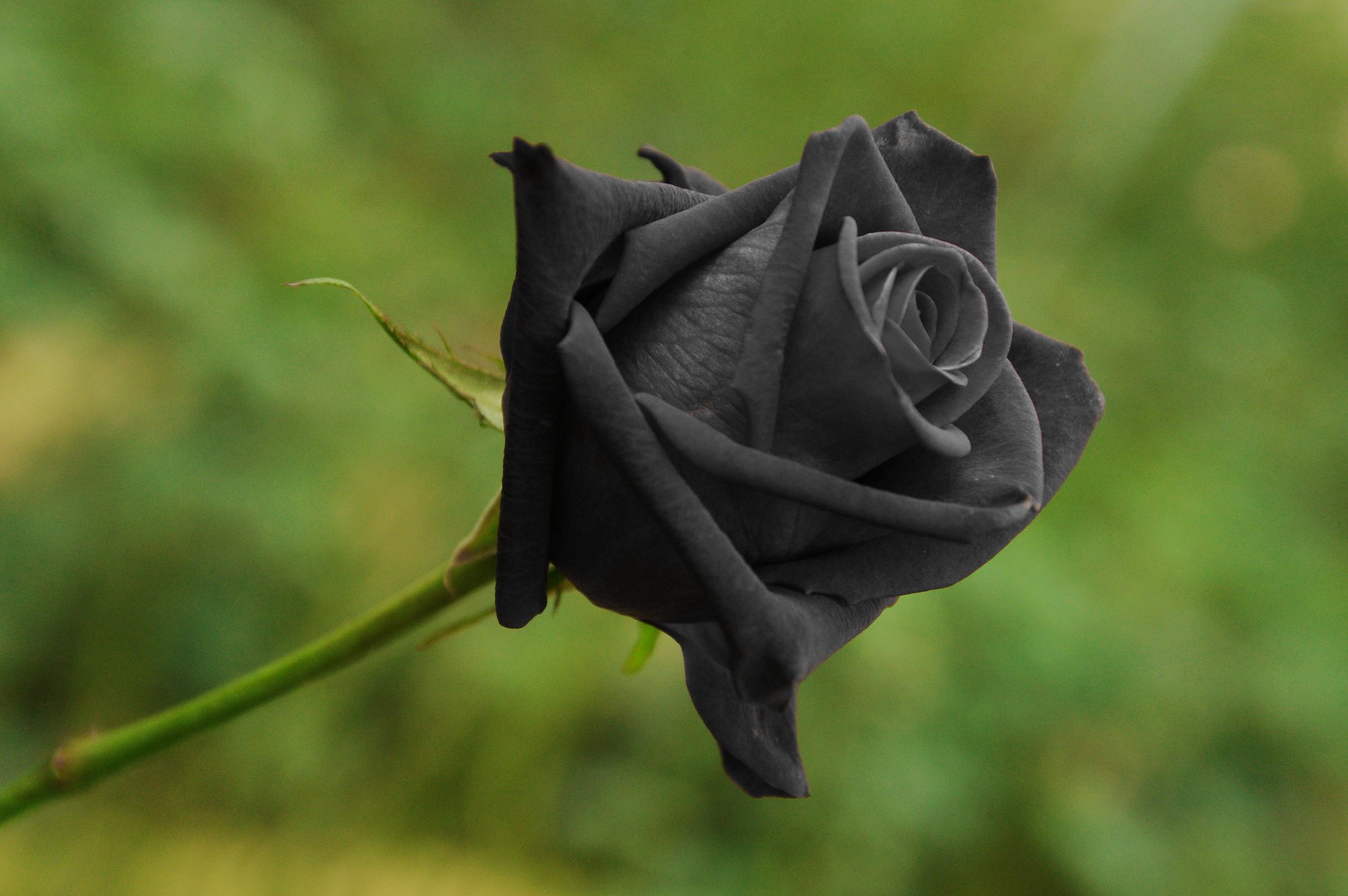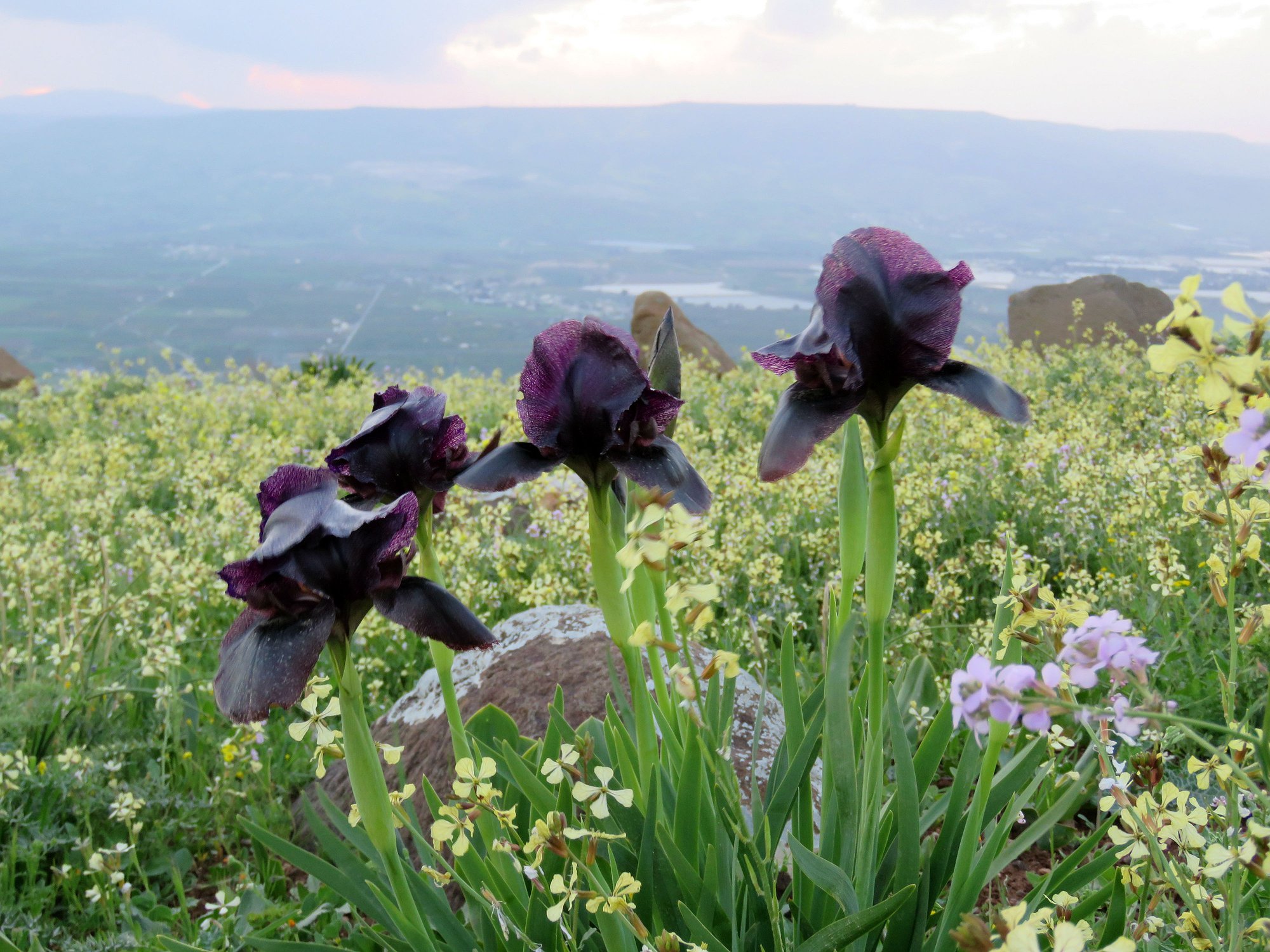Black is the color of my true love's … garden?
I was reading an article by noted author and gardener Rob Proctor the other day, wherein he was musing on the possibilities of a black garden.
He pointed out several plants — grasses and flowers, mostly — that would do nicely, like the nearly black hollyhock (Alcea), the black pansy (Viola), the black-foliaged variety of cimicifuga (cohosh/snakeroot), "Hillside Black Beauty Bugbane" — which does have the traditional white flowers, but on long, dark stems rising from dark purple/copper leaves. He named others as well — among them black Calla, Elephant's ear, ornamental Japanese grass, etc. — which, while apt, would not grow in our cold climate.
I got to thinking about it, though, and accepting that the hollyhock, pansy, and cohosh would definitely grow here, took it upon myself to see what others of similar ilk I could find. As did Proctor, I must point out that a true black is mostly of the imagination, because there will generally be an underlying hint of purple, red, burgundy, or deep blue. As daylight wanes, though, the flowers or foliage would indeed, look quite black. Kinda fun, if you're into such a quirky preoccupation.
Clematis is hardy here, and I think Etoile Violette — "Purple Star" — would fill the bill. Its rich purple is almost black. Too, there is the new heuchera (coral bells) called "Amethyst Mist" with rich purple-green foliage, and another, "Plum Pudding," with crisp plum foliage … laced with intensely dark veins," to consider as well. Or, think Weigela — "Wine and Roses" — that boasts glossy burgundy/black foliage into the fall.
I found that while Proctor's suggested roses ("The Prince" and "Chianti") are David Austin English varieties — not too dependable here — that the shrublet rose (a bit larger than a mini) "Black Jade" could work. Its buds are nearly black, opening into midnight red blooms. Wow! The hardy shrub rose "Black Gold" is another option, as is "Black Ice." Each of these roses have buds of darkest velvet black and are available at stores selling heirloom and old garden roses.
How about a black pussy willow? A Japanese native, this true Salix has large, richly black catkins, and loves moist soil and sunshine. Definitely hardy here.
Depending on the soil, the color of Continus "Royal Purple" (Smoke Bush), can range from dark purple-grey to nearly black. It thrives here, is really a beautiful ornamental piece, and is widely available.
Lilacs (Syringa) love North Idaho and there are some new, quite dark varieties, notably "Andenken an Ludwig Spaeth," which should be fairly easy to order from area nurseries.
Another enthusiastic grower here is the iris — both Siberian ("Ruffled Velvet") and the standard "flag" — which is available in several nearly black coloration choices ("Study in Black," "Black Dragon" and "Superstitiion"). There are also a few, very dark Asiatic lilies and even a rich burgundy/black daylily for care-free culture. Naturally, you'll want to put in some tulip bulbs, selecting from some gorgeous black to black/red and black/purple choices.
Finally, for the veggie garden, go for the darkest eggplant, purple culinary sage, "MacGregor's Favorite" beet with deep metallic purple tops, dark red cabbage ("Ruby Perfection"), "Firebird radicchio," purple pod beans, and bronze fennel — or use most any of them as a knock-out focal point among your ornamentals to help "darken" things up in your quest for a black theme.
And while you're at it, why not put up a nearby bat house?
Editor's note: For many years, Valle Novak wrote gardening and cooking columns for the Daily Bee. "Weekend Gardener" and "Country Chef" became renowned for their humor, information, and common-sense advice on how to do everything from planting to cooking. She left behind many columns to delight her many fans. This is one such column, originally published on Jan. 21, 2001.







